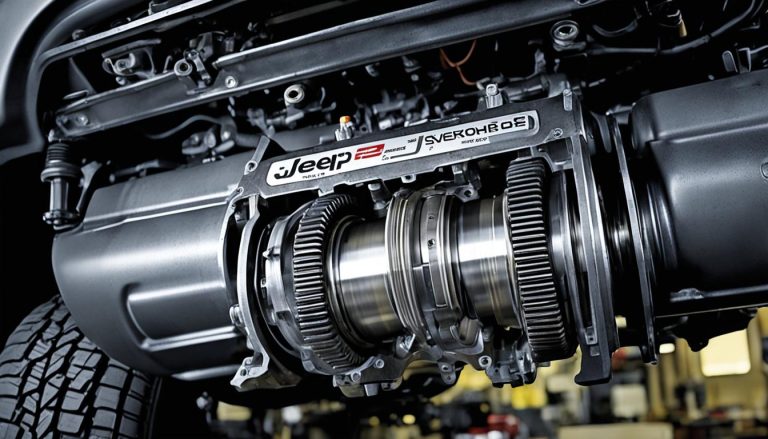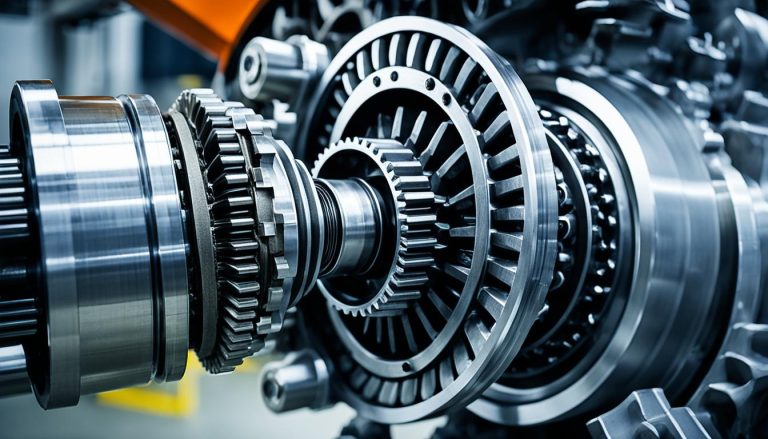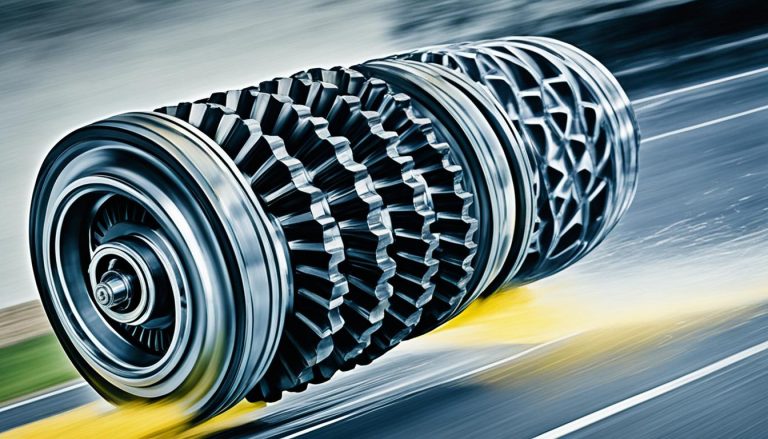Does Extra Limited Slip Additive Damage Differentials?
If you’re tuning up your vehicle, you might wonder about the role that limited slip additive plays in maintaining your rear differential. After all, it’s no secret that this particular additive is key to the smooth performance of your car’s gears. But can too much of a good thing turn into one of those dreaded rear differential problems?
For those of you who enjoy pushing your ride to its limits or simply want to ensure the longevity of your vehicle, understanding automotive additives and their correct applications is crucial. Whether you’re navigating through tight corners or cruising down the highway, the additive in your differential oil makes all the difference in providing that fine balance between traction and slip.
Key Takeaways
- Proper use of limited slip additive is essential for the health of your differential.
- Understanding the balance required can prevent unnecessary rear differential issues.
- Always consider the manufacturer’s specifications when dealing with automotive additives.
- Differential chatter is a sign that your vehicle could use a properly dosed additive.
- While some gear lubes, like AMSOIL, may not need extra additives, others might require a helping hand.
- Maintaining the right amount of additive is key for avoiding slippery situations in your differential operation.
Understanding the Role of Limited Slip Additive in Differentials
When you’re navigating through challenging driving situations, it’s the limited slip differential in your vehicle that’s silently working overtime. In the realm of automotive performance, especially where the rear differential is concerned, ensuring the proper use of differential gear oil and differential fluid is pivotal. But it’s not just about adding fluids; it’s about understanding the chemistry at play and the role that additives have in maintaining the sync of those mechanical ballets underneath your car.
The Function of Clutch Plates in Limited Slip Differentials
At the heart of every limited slip differential lie the clutch plates. They are the unsung heroes responsible for managing the shear stress and torque transfer when grip levels vary between wheels. With each plate’s interaction, a harmony is achieved that allows for controlled differential movement and, as a result, smoother traction distribution. It’s essential that your differential gear oil accommodates the specific needs of these clutch plates to prevent them from any wear and tear that could compromise your ride’s performance.
How Gear Lubricant Affects Differential Performance
Differential fluid isn’t just a fluid—it’s a carefully engineered enhancer for your vehicle’s transmission system. It’s designed to protect and maintain the intricate components within your differential, and choosing the right blend could mean the difference between an effortless drive and a taxing journey filled with mechanical chatter.
The Chemistry Behind Chatter: Stability and Frictional Properties
It’s all about finding balance within the dynamics of your vehicle’s rear differential. Differential chatter is not just an unpleasant noise; it’s a cry for help from the clutch plates, signaling an issue with the stability and frictional properties of the lubricant. Integrating a limited slip additive isn’t simply a preventative measure, but a necessary step towards ensuring long-term health of your differential.
| Differential Component | Function | Impact of Differential Fluid |
|---|---|---|
| Clutch Plates | Torque transfer management | Frictional properties ensure smooth engagement and disengagement |
| Gears | Transmits power to the wheels | Lubricant provides cushioning to prevent wear and overheating |
| Carrier Bearings | Supports differential carrier | Fluid protects against corrosion and reduces rolling resistance |
| Spider Gears | Allows wheels to rotate at different speeds when turning | Correct oil ensures smooth operation and longevity |
Will More Limited Slip Additive Hurt My Rear Differential
When it comes to differential maintenance, you might wonder if adding more rear differential additive than what’s recommended could lead to damage. It’s a common question among car enthusiasts and technicians alike. Yet, the consensus is clear: while an excess of limited slip additive is unlikely to harm your differential, it can definitely impact how well it functions.
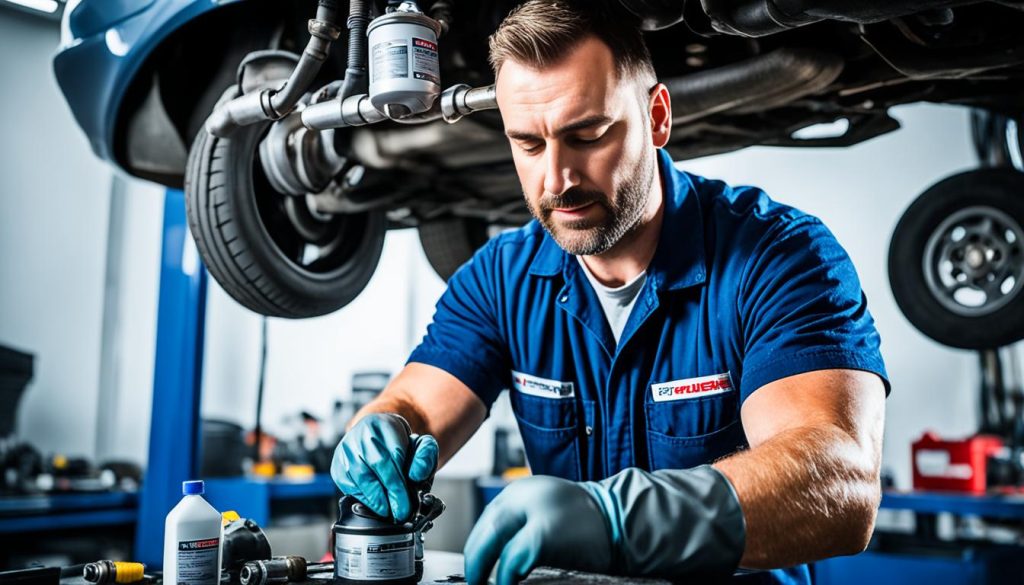
Think of your differential fluid as the lifeblood of your rear differential; it needs to maintain the right consistency and frictional characteristics to perform optimally. Adding a limited slip additive can help if your differential exhibits chatter, but too much can make the clutch plates within your differential too slippery, reducing its effectiveness in providing traction when you need it most.
So, how do you know what’s the right amount? We’ve outlined below the general guidelines and effects of adding various quantities of limited slip additive:
| Amount of Limited Slip Additive | Typical Effects on the Rear Differential |
|---|---|
| Manufacturer’s Recommended Amount | Maintains desired friction, prevents chatter, keeps limited slip functionality optimal. |
| Extra Bottle | Can reduce minor chatter, but risk of over-lubrication and reduced traction capabilities may occur. |
| Excessive Amounts | Significantly reduces clutch plate friction, potentially leading to a loss in differential performance and increased wear. |
Always consult your vehicle’s manual or a trusted auto professional before adding any rear differential additive. Remember, differential maintenance is about balance—a little can go a long way in preserving your car’s performance without the question, will more limited slip additive hurt my rear differential lingering on your mind.
When to Use Limited Slip Additives: Dealing with Differential Chatter
Understanding when to reach for a limited slip additive can be the key to smooth driving and the longevity of your vehicle’s differential. If you’re hearing that telling grinding noise or feeling vibrations during turns, it might be indicating rear differential problems. Often referred to as differential chatter, these symptoms can disrupt your ride’s comfort and performance. But with the right differential maintenance tips and products, you can tackle these issues head-on.
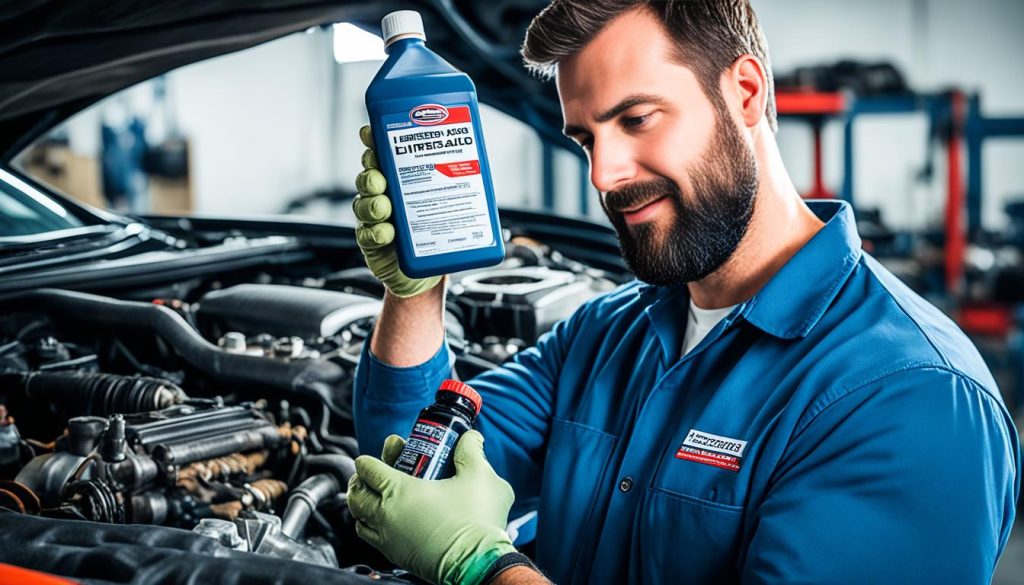
The Symptoms of Chatter and How Additives Help
Chatter in the rear differential doesn’t just sound alarming; it suggests something may be amiss with how your differential is functioning. When you notice vibrations, grinding, or humming noises during acceleration or deceleration, that’s your cue. Employing a limited slip additive can provide the necessary friction to allow the clutch plates to engage smoothly, helping you avoid further wear and preventing potential rear differential problems down the line.
Exploring Aftermarket Solutions: Are They Safe?
When pondering aftermarket solutions like limited slip additives, safety and compatibility with your vehicle’s specifications should top your considerations. AMSOIL Synthetic Gear Lube, for instance, is formulated with advanced friction modifiers designed specifically to reduce chatter, allowing your differential to operate quietly and efficiently without needing an additional limited slip additive. However, it’s important that whatever solution you choose aligns with your manufacturer’s recommendations to ensure optimal safety and performance.
| Symptom | Potential Cause | Solution |
|---|---|---|
| Vibrations during turns | Clutch plates sticking | Add limited slip additive |
| Grinding noise under load | Insufficient friction | Check/change differential fluid |
| Humming noise at speed | Worn differential bearings | Inspect and potentially replace bearings |
Synthetic vs. Petroleum Gear Lubricants: What’s Best for Your Rear Differential?
When it comes to rear differential maintenance, one of the key decisions you’ll face is choosing between synthetic and petroleum gear lubricants. This choice isn’t just about preference; it’s about what’s going to offer the best protection and performance for your vehicle. Both types of lubricants have their place in the automotive world, but understanding the differences can ensure that your rear differential operates smoothly and efficiently.
Comparing the Benefits of Synthetic Gear Lube
Synthetic gear lubes, like AMSOIL SEVERE GEAR Synthetic Gear Lube, are renowned for their ability to withstand extreme conditions and provide outstanding protection. Notably, these lubricants usually include automotive additives that help manage any limited-slip differential chatter, negating the need for additional products. The advanced formulation means that, in many cases, synthetic lubes are the preferred choice for ensuring your vehicle handles high temperatures and pressures without losing performance.
Navigating Through Various Gear Oil Recommendations
Nevertheless, the suitability of a gear lubricant also hinges on specific recommendations from vehicle manufacturers. For example, owners of certain models might find GM’s latest differential gear oil to be the most compatible option for older vehicles experiencing chatter. As you navigate the selection process, prioritize the lubricant that aligns with your driving habits and your vehicle’s requirements, whether it leads you to a synthetic or petroleum-based product. Remember, the right lubricant will not only prevent common differential issues but also extend the life of your vehicle’s components.
FAQ
Does extra limited slip additive damage differentials?
Generally, adding more limited slip additive than recommended won’t damage your differentials, but it’s important to achieve the right balance to maintain the correct functioning of the clutch plates and avoid reducing the differential’s limited-slip capabilities.
What is the role of limited slip additive in differentials?
Limited slip additive is essential in providing the necessary frictional properties for the proper engagement and disengagement of clutch plates in limited slip differentials. This helps prevent “chatter” and ensures smooth torque distribution between wheels.
How do clutch plates function in limited slip differentials?
Clutch plates in limited slip differentials are responsible for managing the torque transfer when there’s a difference in wheel traction. The additive affects how these plates perform, ensuring a seamless transfer of power.
Can gear lubricant choice affect differential performance?
Yes, the type and quality of gear lubricant can significantly impact differential performance. Synthetic lubricants like AMSOIL often contain friction modifiers that help manage limited-slip differential chatter.
How does limited slip additive contribute to chatter stability?
Limited slip additive helps maintain the stability of the lubricant’s frictional properties, reducing the likelihood of differential chatter. This means gears can engage and disengage smoothly without noise and vibration.
How can you tell if your differential is chattering, and what can you do?
Chatter is usually indicated by a grinding noise or vibrations during acceleration or deceleration. If experienced, using the recommended amount of limited slip additive often helps alleviate these symptoms.
Are aftermarket solutions like AMSOIL safe for eliminating chatter?
Aftermarket solutions, such as AMSOIL Synthetic Gear Lube, are designed to mitigate chatter and are generally safe to use if they meet or exceed the differential manufacturer’s specifications.
What are the benefits of using synthetic gear lube?
Synthetic gear lube offers superior protection and performance, particularly under extreme conditions. It also commonly includes friction modifiers that can eliminate the need for additional additives, making differential maintenance simpler.
How should you navigate through various gear oil recommendations?
You should review the gear oil recommendations from your vehicle manufacturer and consider factors such as driving conditions, differential design, and whether your vehicle’s differential requires specific additives for optimal performance.


